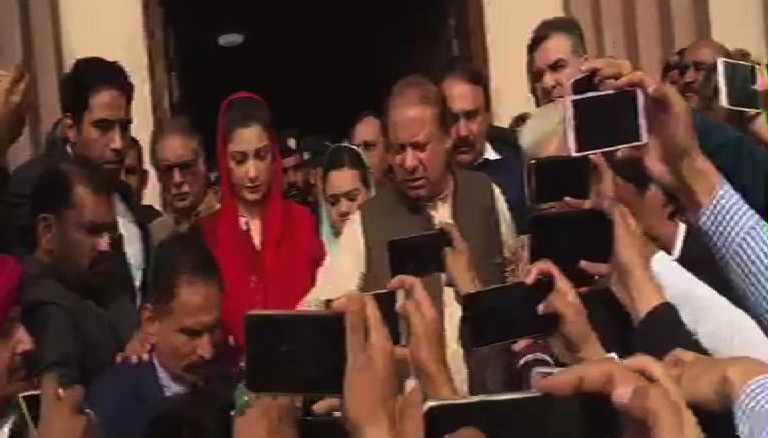Clubbing of references: IHC sends notices to NAB on Nawaz's plea
November 14, 2017
ISLAMABAD: The Islamabad High Court (IHC) sent on Tuesday notices to the National Accountability Bureau on former prime minister Nawaz Sharif's petition challenging the accountability court's decision to dismiss his plea to club three corruption references against him into one.
Nawaz challenged the decision earlier today through his lawyer Azam Tarar, stating that the verdict was given in haste and the accountability court did not take into account the points in the earlier IHC verdict.
Hearing the plea, IHC Justice Aamer Farooq and Justice Mohsin Akhtar Kayani dismissed Nawaz's request to suspend the accountability court's hearing.
The hearing was adjourned until Monday, November 20.
The petition had pleaded the IHC to direct the accountability court “to frame one charge and conduct a single trial” against the Sharif family in the three corruption references filed by the National Accountability Bureau.
The IHC should also suspend accountability court proceedings till the framing of a joint charge against the Sharifs, the petition requested.
The petitioner had also requested the IHC to take up the plea as soon as possible and dismiss the trial court's order.
The accountability court hearing corruption cases against Nawaz Sharif and his family dismissed his plea to club references on November 8.
The plea was heard by the court on the orders of IHC, after initially dismissing the plea.
The corruption references were filed by the NAB in light of the Supreme Court's judgment in the Panama Papers case.
Nawaz and his two sons, Hussain and Hasan, are nominated in all three references whereas his daughter Maryam and her husband are only accused in one.
Charges different in all cases: accountability court
The detailed accountability court order dismissing the plea was issued on November 10, stating that the three references comprise different charges, as opposed to the petitioner's claim that the accusations are the same.
The judge stated in his ruling that only two witnesses are common among the three references, denying another assertion by Nawaz in his petition.
The judge also remarked that the petitioner wanted to make things easier for himself by getting the three references clubbed.













